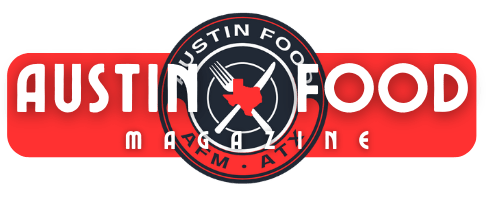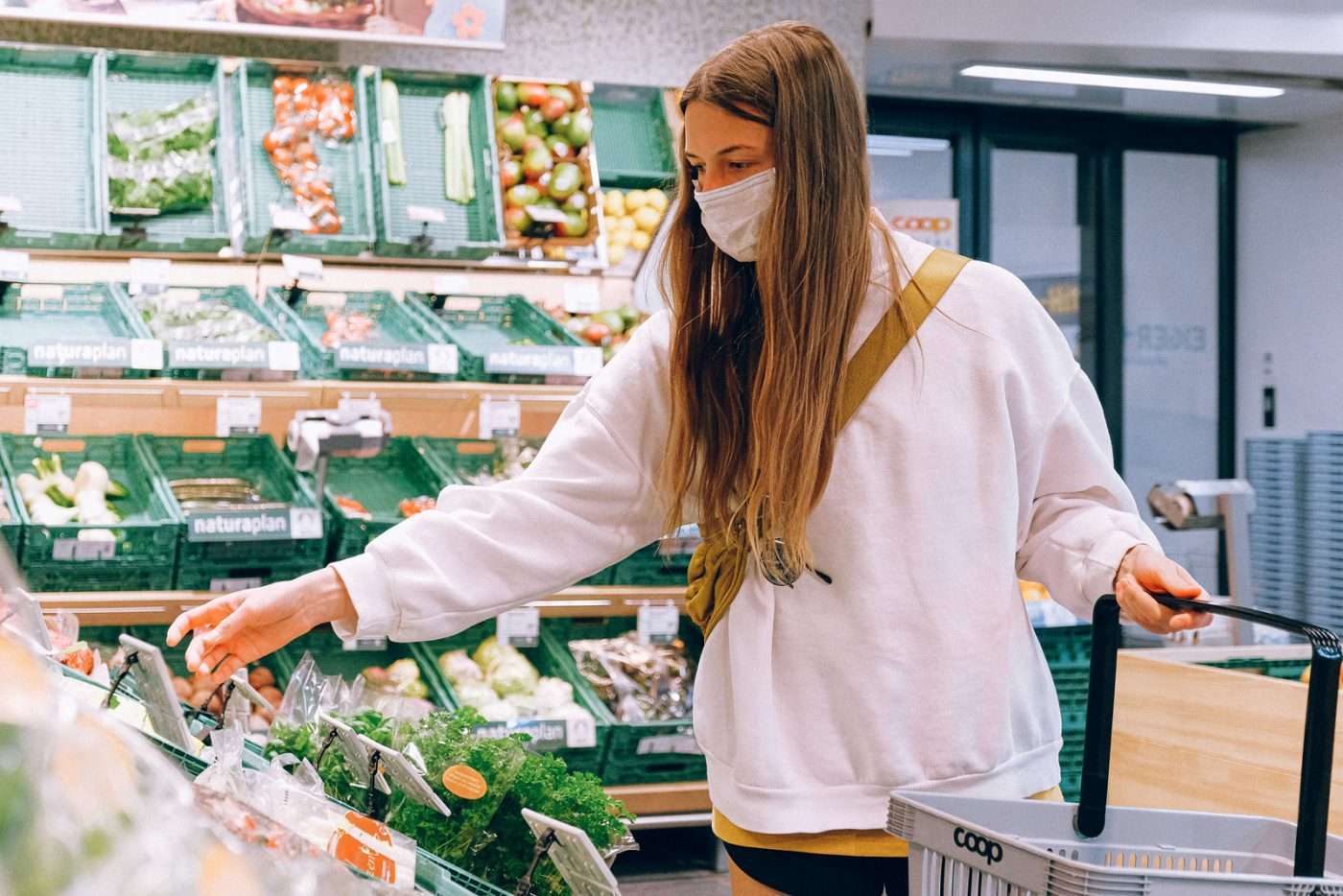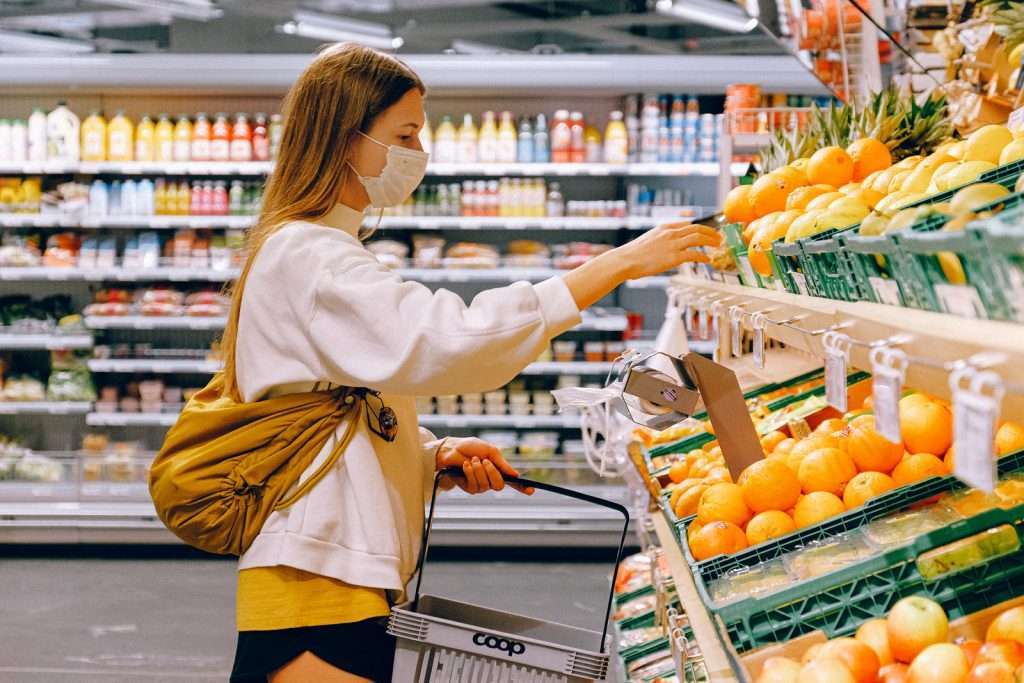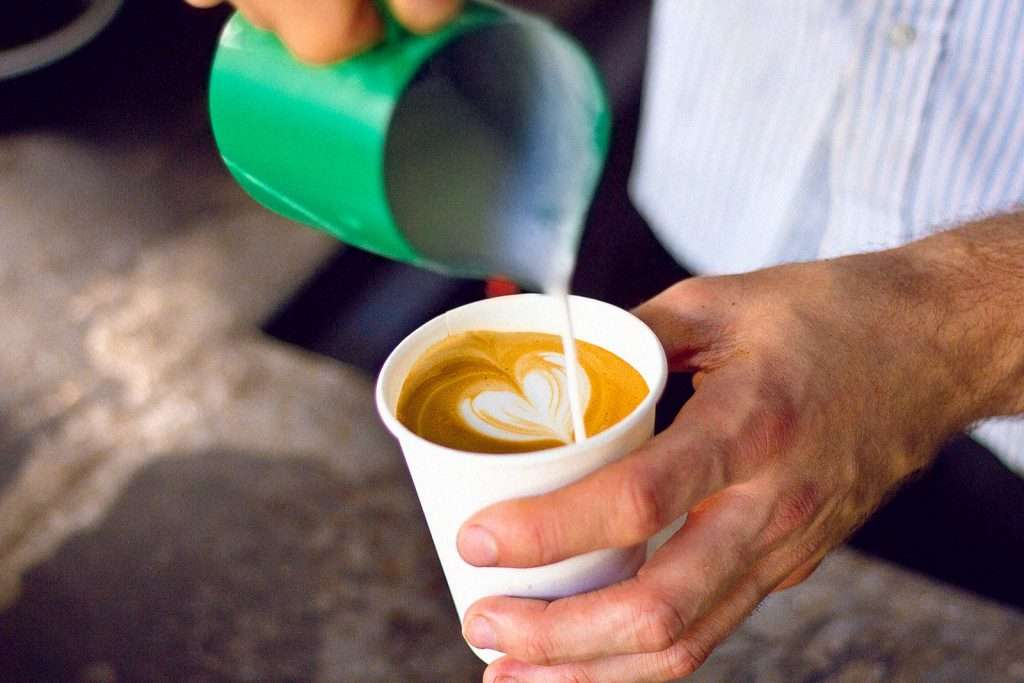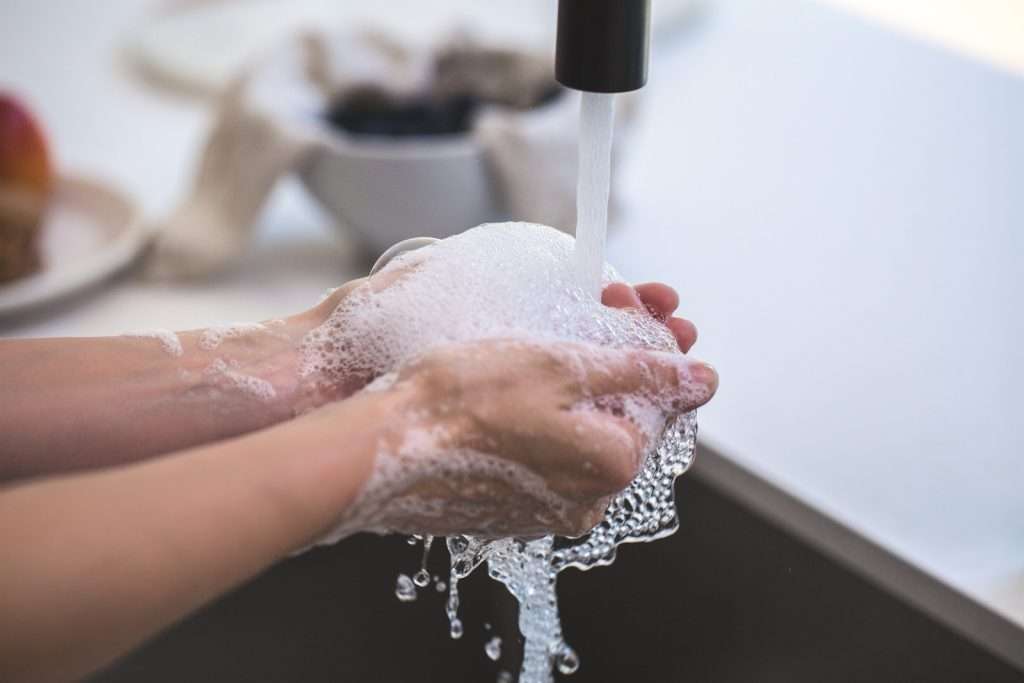With the threat of Coronavirus pandemic affecting the world, local grocery stores, restaurants and food distributors have been closely monitoring updates from the Food and Drug Administration (FDA), CDC, World Health Organization (WHO) and government officials who are working together to update the public with information on food safety.
Health authorities around the world are investigating the characteristics and symptoms of the pathogen as well as its rate of infection. As we continue to learn more about the spread of COVID-19, many have concerns about proper food handling procedures and safety guidelines as we all shop for food and order takeout from local restaurants.
8 Food Safety Facts
Jump Ahead To
Shopping For Groceries
Despite the number of empty shelves from hoarding and restaurant closures in cities all over the country, food production suppliers, farmers and distribution centers are not reporting any shortage of food supplies. The U.S. Department of Agriculture (USDA) is collaborating with federal and state agencies and all are monitoring supplies closely to ensure all Americans have access to food in their time of need.
It is best to purchase enough food at the store once a week and focus on getting the most out of your purchases. Store and refrigerate items properly to avoid spoilage or expiration. Minimize your trips to avoid contact with others in overcrowded markets. Try using online grocery apps to do curbside pick-up or have your groceries delivered or try shopping in smaller markets or convenience stores where there are fewer shoppers.
Items like toilet paper, soap, meat, pasta and other grocery products have been very popular and many are taking advantage of the situation by over purchasing which is mostly unnecessary and incredibly rude.
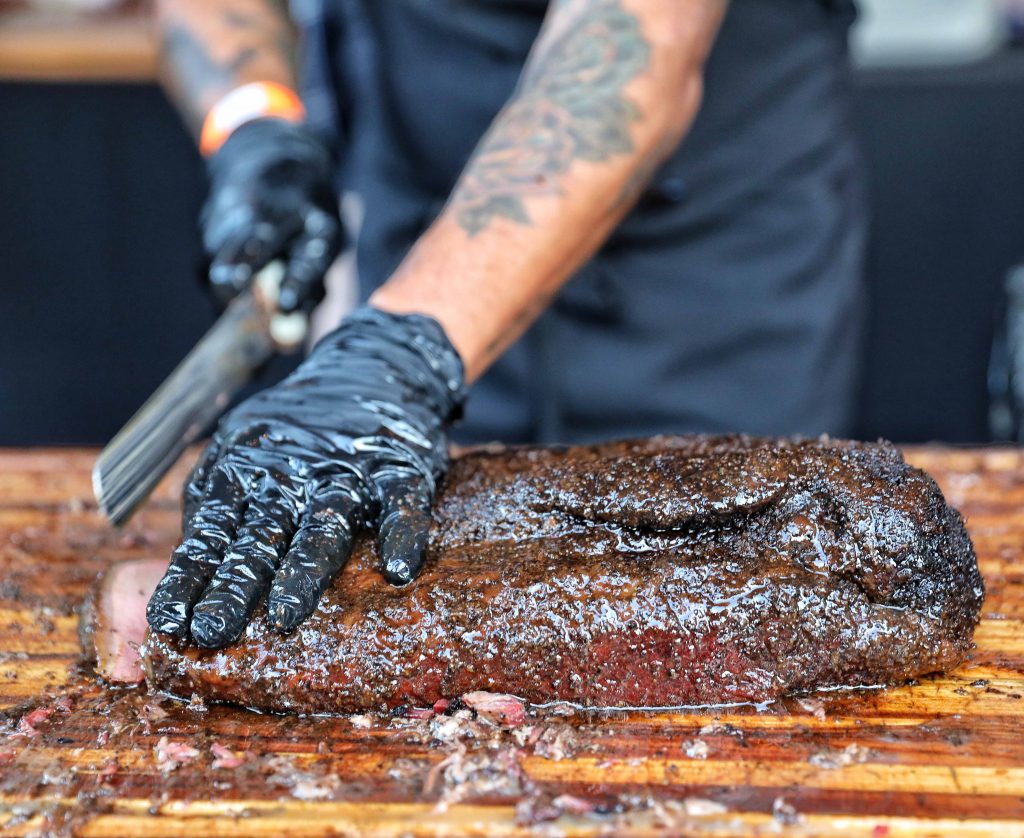
Food Preparation & Handling
So far, there is no evidence that food is an effective transmission vessel for the Coronavirus. Despite this, most restaurants and grocery stores have adapted to practicing safer food-handling protocols to avoid any potential transfer of germs. Restaurants have closed their dining halls to only offer curbside pickup and take out to limit the number of hands that can touch doors and countertops which will aid in avoiding the spread of the virus.
Area restaurants have taken proactive steps to maintain appropriate social distancing and sanitizing standards, which include:
1. Ensuring that all staff are healthy before, during and after service by checking temperatures.
2. Restaurant staff are constantly washing and sanitizing their hands, and all points of contact people may touch.
3. Offering curbside and pick up meals as well as delivery services.
Please check out https://ofwemergencyfund.org/ to directly support service workers.
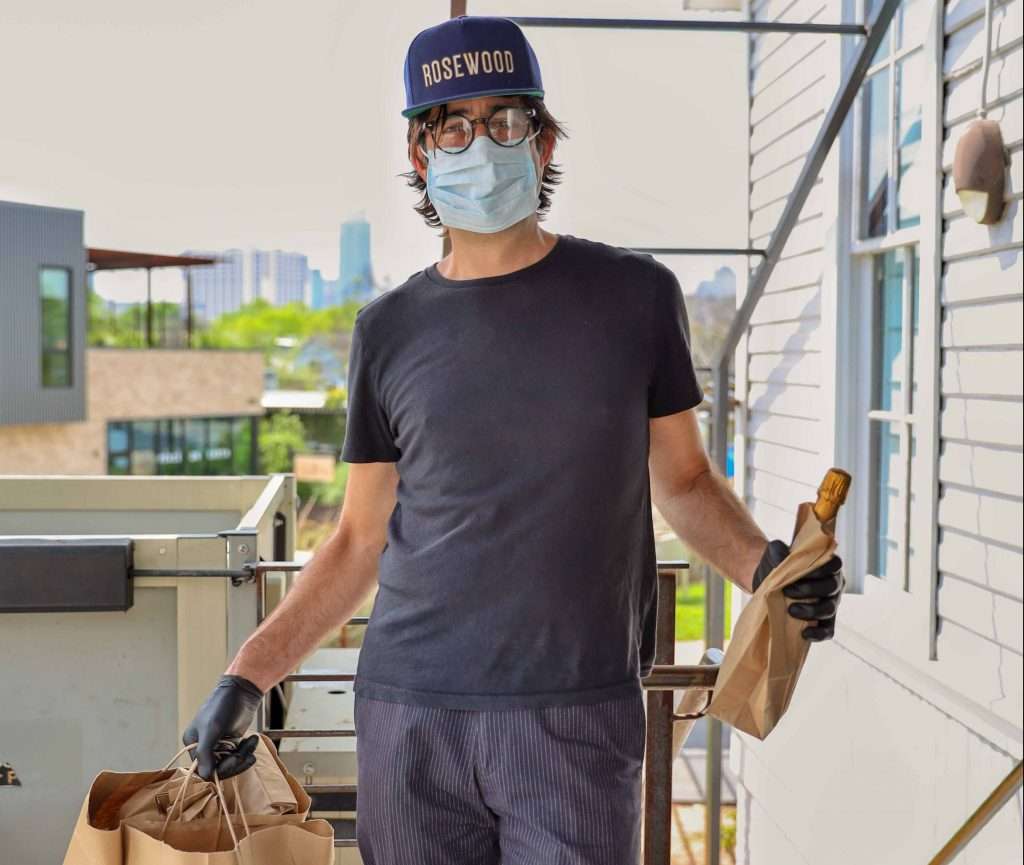
Ordering Takeout and Food Delivery
Anyone using food delivery should be using the same safe food-handling practices as those who are in the restaurant preparing the meals and delivering food. Food delivery minimizes in-person contact, which can also decrease the chances of spreading germs and the virus itself.
-Order your favorite go-to meal online and opt for contactless delivery
Many restaurants offer delivery through services like Favor and DoorDash. Instead of risking your health or that of others by going to your favorite eatery during home quarantine, why not order online for delivery?
-Use your own cutlery and sauces, if you can!
You know the plastic fork and knife that comes with your takeout order? Let them know that you won’t be needing them and use your own instead. Do the same with more common sauces, like ketchup, to reduce the chance for contamination.
-Wipe down the bag and food container
Surfaces can hold germs longer than the air. That’s why it’s more important than ever to make sure you wipe down the handles of the bag your food arrives in, as well as the outside of the food container before you start to eat.
-Transfer food to a plate or bowl instead of eating out of the container
Take another step and transfer the food to a plate or bowl you own to avoid having the take-out container on your table.
Service Employee Exposure
Employers have adapted several best practices to maintain safe food handling procedures. Best practices include requiring employees to stay home if they appear sick or show any symptoms of the illness. Employees are required to wash and sanitize their hands in between each time they handle food. Many employees have also been instructed to wear protective gear, such as face masks, gloves, aprons and hairnets.
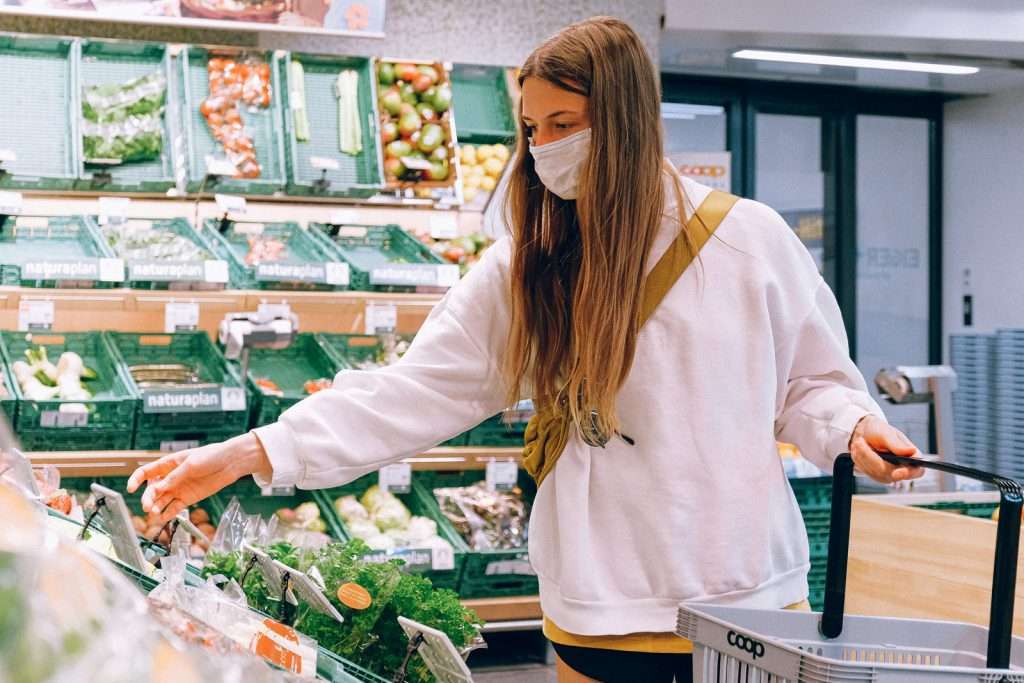
Avoid The Virus While Shopping
It is very important to practice good hygiene in the prevention of passing or contracting the virus. To avoid germ transfer, you should avoid touching your face while you handle food packaging or shopping carts. Most stores have hand sanitizer stations or disinfectant wipes throughout the store for shoppers to use on their hands and to wipe down shopping carts.
-Nix the reusable bags for now
Reusable bags sit in your grocery cart and on surfaces throughout the store as you move around before coming home to sit on your counters. For now, opt for disposable bags. Just be sure to recycle them afterward! If you still choose to use a reusable bag, use a soft surface sanitizing spray on them when you arrive home and before entering your house.
– When in doubt, wipe it down
Take advantage of the antimicrobial wipes provided at most grocery stores. Make sure to wipe down all parts of the shopping cart that you touch. Don’t forget to get the sides of the shopping cart as well as the handle.
-Consider gloves or wipes
If you have them, consider wearing plastic gloves to the store. Be sure to remove them before getting back in your car. You can also use disinfecting wipes to pick up items from store shelves.
– Utilize self check-out when you can
In order to minimize your contact with others, opt for self check-out if available. Make sure to use an antimicrobial wipe to wipe down any surfaces that you will touch during the process.
-Take a wipe to go
Grab another wipe on your way out of the store to wipe down any surfaces in your car that you touch frequently, including the steering wheel and gear shifter. This can help to avoid germ transfer from the store to your home.
-Wash all fruits and vegetables when you get home
According to the FDA, all you need to get your fresh produce clean for consumption is to wash them thoroughly with water. Fill your sink with water and use a vegetable scrubber if you have one to remove dirt and other impurities before consuming.
Wash Your Hands Before and After Shopping
The CDC advises that proper hand washing includes scrubbing your hands for at least 20-30 seconds with clean water and soap. Hand sanitizer should not be used to wash your hands and should only be used when washing is not possible. You should always wash your hands before and after food shopping and preparation, as well as before and after physically touching any people. It should also go without saying, that washing your hands before and after going to the restroom should be done for proper hygiene.

Alcohol Consumption WILL NOT Kill the Virus
This might sound like a joke to some, but there has been a fake news story that alcohol consumption will kill the virus. While this might be a nice way to enjoy your time in quarantine, it is definitely not a laughing matter. According to the CDC, the virus attacks the lungs and may cause pneumonia, which has been known to cause death. In fact, according to a study published in the journal Alcohol Research, “excessive alcohol consumption” is associated with “adverse immune-related health effects such as susceptibility to pneumonia.” which means excessive alcohol consumption may increase your chances of contracting the virus.
High proof alcohol may be used as a disinfectant on surfaces to kill to kill the virus and many local distilleries like Desert Door and Treaty Oak are making hand sanitizer to provide to restaurants and emergency services, due to the shortage in stores. Drinking it will not protect you.

